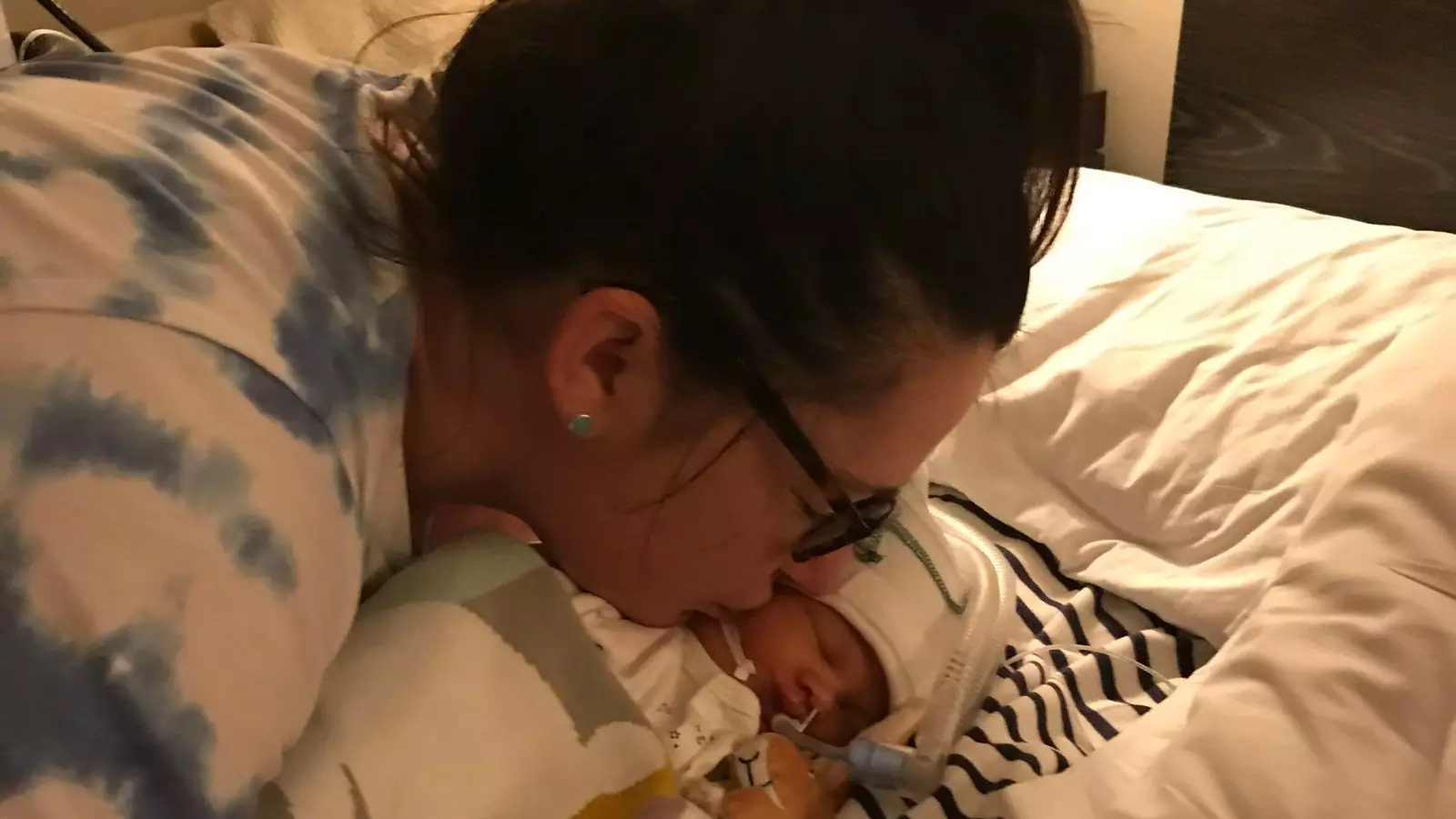When we think of childbirth, an image of joy and celebration often comes to mind. However, the case of baby Ida Lock tragically unveils another side to this process—a reality riddled with pain and neglect. Born at the Royal Lancaster Infirmary, little Ida lived just seven days due to severe brain injuries that were preventable. The factors surrounding her death expose not just individual failings but a broader systemic problem within maternity care in the UK that demands immediate attention and reform.
A Trail of Questions and Blame
In the aftermath of such a loss, it is little surprise that Ida’s parents, Ryan Lock and Sarah Robinson, have spent years searching for answers. Their journey has been anything but smooth. Instead of receiving the support they needed during their darkest hours, they encountered a wall of silence from those responsible for their daughter’s care. Sarah likened the experience of her grief to being trapped in a cyclone of blame, questioning her own actions while the system remained clumsy and evasive.
This emotional turmoil is not unique to them; countless parents faced with tragedy and loss often find themselves battling against an embattled healthcare system, desperately trying to unearth the truth that seems buried beneath layers of bureaucracy and denial. Such experiences can exacerbate feelings of guilt and despair, as grieving parents are left to wonder what went wrong without conclusive answers.
Systemic Failures: An Unforgivable Reality
An investigation by the Healthcare Safety Investigation Branch (HSIB) unveiled serious deficiencies in the care of Ida Lock. The midwives failed to respond to crucial warning signs, such as an abnormal foetal heart rate, and subsequent resuscitation efforts fell terribly short. Instead of a story where the medical professionals performed their duties with diligence, we are confronted with a dark illustration of negligence—a sentiment that Dr. Bill Kirkup, who has investigated similar cases, pointedly noted as “unforgivable.”
The reality is alarming: this incident is not isolated, but rather reveals a disturbing pattern of failures that extend far beyond a single unit. The Care Quality Commission’s national maternity inspection program identified that over 65% of maternity units were rated as either “inadequate” or “requires improvement.” This raises questions not only about individual accountability but also about the overarching culture within a system that continues to allow such tragedies to unfold.
The Call for Reform: A New Culture in Maternity Care
There is a desperate need for a change in culture within maternity services. Both Ryan and Sarah Lock advocate for greater accountability, urging that those responsible for care must face the consequences of their actions or inactions. If healthcare professionals feel they can operate without scrutiny or fear of repercussions, the cycle of negligence will persist.
Their calls for reform echo throughout a system that should prioritize transparency and learning from mistakes rather than defending a status quo steeped in denial and obfuscation. The healthcare system must cultivate an environment where healthcare providers are encouraged to be honest and forthright, recognizing that errors, while tragic, can be invaluable learning experiences—ones that could prevent future heartache.
Emotional Aftershocks: Impact Beyond the Hospital
Ida’s story doesn’t end in the sterile confines of a hospital. It lingers in the psyche of her parents, permanently altering their lives. Sarah, despite having welcomed another daughter since Ida’s passing, continues to grapple with anxiety and emotional trauma generated by her previous experience. Her plight is a sobering reminder that the repercussions of medical failures extend far beyond the clinical ward.
Parents, expecting joy in welcoming a child, are instead left fragmented and emotionally distraught, demonstrating that the emotional toll of such tragedies can echo through a family for generations.
What happened to baby Ida Lock is not simply an isolated incident but rather a glaring indictment of a maternity care system in urgent need of transformation. What must occur is not only the acknowledgment of past mistakes but a proactive commitment to safeguarding the futures of countless mothers and their babies, ensuring that no other family has to endure the heart-wrenching journey faced by the Locks.


Leave a Reply